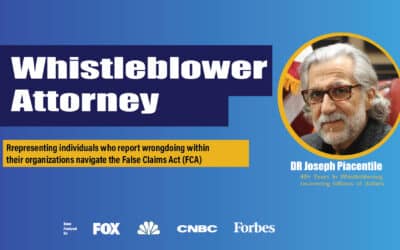FINANCIAL AND SECURITIES FRAUD
FINANCIAL AND SECURITIES FRAUD LAWYERS
Financial fraud is any act that causes people to purchase or sell a stock based on false or misleading information, or who violate securities laws. Whistleblowers may report many different types of securities fraud, from outright embezzlement to sophisticated stock market manipulation infringing the rules created to protect investors and the general public.
As a whistleblower, your rights are protected. Contact Whistleblowers International at or by submitting an online contact form to learn more.
Financial and securities fraud directly harms investors and companies in the public and private sectors by manipulating stock prices. Today, it is estimated that malicious schemes cost the markets between $10‐40 billion annually. Those who illegally manipulate, buy, and sell prices affect the 200 million individuals who trusted their savings in this type of investment, and directly or indirectly rely on them through their pension funds and retirement accounts.
SEC PROTECTIONS FOR WHISTLEBLOWERS
As the responsibility held by unscrupulous corporations in the 2008 market crisis became more widely known, public and government officials called for increased regulations and policing of Wall Street. In response, Congress passed the Dodd-Frank Wall Street Reform and Consumer Protection Act in 2010. This Act introduced comprehensive regulatory changes and consumer protection tools aimed at uncovering fraudulent schemes before they cause substantial economic damage.
One of the Act’s primary objectives was to detect potential fraudulent behaviors by incentivizing individuals to report illegal activity through whistleblowing. The Act created the Securities and Exchange Commission (SEC) Whistleblower Office, which granted protection, full anonymity, and large monetary rewards to all relators that help the Government bring these criminals to justice.
Today, the SEC Whistleblower Office remains a program that protects and grants anonymity and rewards to those who come forward to expose financial and security frauds.
SECURITIES FRAUD UNDER THE SEC WHISTLEBLOWER PROGRAM
To date, banks and other financial institutions continue to operate with little effective government oversight. The U.S. government has increasingly relied on whistleblowers to help detect and prosecute fraud, and it has created several programs and legislation to ensure they would be handsomely rewarded. With the current legislation, an attorney can be hired to file a SEC claim anonymously and, if the case is successful, receive a monetary award based on the money recovered by the authorities. The percentage ranges from 10 to 30 percent of the monies collected based on the information provided (so it may reach up to several millions of dollars), with a minimum payment of $100,000.
Learn more about the SEC Whistleblower Program here.
TYPES OF FRAUD COVERED BY THE SEC
There are several types of SEC fraud that can be recovered under the DFA, IRS Whistleblower Statute, and False Claims Act. Typically, only employees are in a position to identify an ongoing scheme (insiders); however, anyone with credible information can report it, including third parties who uncover illegal activities through independent investigation. Some examples of these unlawful practices include:
Corporate disclosure fraud & false financial statements
Filing false or misleading financial statements usually involves engaging in accounting practices that create the appearance of increased earnings and revenue. Another common scam includes forging business transactions that generally have no practical purpose other than to manipulate revenues, expenses, earnings and/or losses.
Insider trading
Insider trading occurs when individuals with nonpublic information use their knowledge to profit on possible stock fluctuations as soon as the information is disclosed. For example, an insider who knows of an impending product recall may short sell the company’s stock right before the announcement. Information can also be illegally sold to a third‐party.
Market manipulation
Market manipulation is the interference with the free and fair operation of the market by engaging in transactions that create or maintain an artificial price. Hedge funds represent an especially vulnerable target. “Churning” happens when a trader places multiple buy and sell orders simultaneously to create the appearance of increased activity and to drive up a stock price.
Violating accounting standards
Companies must keep accurate accounting books and records. Improperly characterizing the nature of expenses, legitimate or otherwise, is a violation of the securities laws.
Offering fraud
Offering fraud occurs when an individual or group of stakeholders lie to potential investors in a new company by inflating its value. An example of this would be a new medical testing company that fails to disclose that one of its blood tests is not effective for its intended purpose.
Money laundering
Money laundering includes all those operations that aim to obscure the source, identity, or destination of the funds during any financial transaction.
Disclosure fraud
Failing to disclose material info, or misrepresenting facts and substance of disclosure like risks and similar underlying loans.
Other common types of fraud include:
- Manipulating performance data
- Secret markup for transition
- Hidden fees
- Conflict of interest
- Investor fraud
Contact Us Today
The information submitted will be submitted to the law firm of Piacentile & Associates LLP d/b/a Whistleblowers International. This communication does not create an attorney-client relationship and is submitted only for the purpose of evaluating your claim to see if this is something we are able to help you with. By contacting us, you certify that you are a potential client making a bona fide inquiry about obtaining legal services to address a potential whistleblowing legal claim. Past results do not guarantee future outcomes. While this submission does not create an attorney-client relationship, all information submitted will be kept strictly confidential per legal ethics rules since this information is submitted in contemplation of a potential attorney-client relationship. No attorney-client relationship is formed until it is determined after evaluation with you that this is something we can take on and a retainer agreement is signed by you and the law firm of Piacentile & Associates LLP d/b/a Whistleblowers International. Please also understand that by submitting your information, there is no guarantee that we will contact you in response, as at any given time, there are only a limited number of claims we are able to take on and pursue. If we do not contact you within 3-business days of your submission, please reach out to another whistleblower law firm if you are interested in pursuing your matter.
Our Areas of Practice
Healthcare Fraud
Securities / Derivatives Fraud
Fraud Against the Government
Tax Fraud
Cryptocurrencies Fraud
Defense Contractor Fraud
Money Laundering
Foreign Corrupt Practices Act
DR. JOE’S CASES HAVE BEEN FEATURED IN:





COMMITTED TO GLOBAL TRANSPARENCY
Unmasking Investment Fraud: A Private Investigator’s Guide to Navigating Financial Scams
As a private investigator specializing in investment fraud cases, I've seen countless victims fall prey to sophisticated schemes that exploit their trust and hard-earned money. Over the years, I’ve gathered insights on how to spot fraud, protect investments, and take...
Whistleblower Attorneys: Protecting Those Who Speak Out Against Fraud
At Whistleblowers International, we specialize in representing courageous individuals who report fraud, misconduct, or illegal Whistleblower Attorneys: Protecting Those Who Expose Fraud At Whistleblowers International, we are...
Financial Crimes Enforcement Network (FinCEN): An Overview
The Financial Crimes Enforcement Network (FinCEN) is a bureau within the U.S. Department of the Treasury that plays a critical role in safeguarding the financial system against illicit activities such as money laundering, terrorist financing, and other financial...
What is FinCEN?
The Financial Crimes Enforcement Network (FinCEN) is a bureau of the U.S. Department of the Treasury dedicated to combating financial crimes, such as money laundering, terrorist financing, and other illicit activities that exploit the financial system. Established in...
PCBs and Cancer: Understanding the Risks and Connections
Polychlorinated Biphenyls (PCBs) are chemical compounds that were widely used in industrial applications before their ban in the late 1970s due to health concerns. One of the most significant risks associated with PCB exposure is cancer. Numerous studies have explored...
Understanding the Current PCB Legal Landscape and Emerging Cases
Polychlorinated Biphenyls (PCBs) Polychlorinated Biphenyls (PCBs) have been the subject of numerous lawsuits for decades due to their widespread use and enduring impact on the environment and public health. Despite being banned in the late 1970s, PCBs continue to pose...
Understanding PCB Exposure: Common Questions and Answers
What is PCB Exposure? Q: What is PCB exposure? A: PCB (Polychlorinated Biphenyl) exposure refers to contact with these man-made chemicals, which were widely used in various industrial applications from the 1930s until their production was banned in many countries in...
Top U.S. Government Contractors and the Risks of Procurement Fraud
The U.S. government is one of the largest purchasers of goods and services globally, spending hundreds of billions annually on contracts with private companies. While these contracts provide significant business opportunities, they also come with risks, including the...
Understanding Government Contract Fraud: Can Contractors Be Criminally Charged?
Government contract fraud is a significant issue affecting both the federal government and the private sector. With billions of dollars allocated to government contracts annually, instances of fraud have emerged as a critical concern. This article explores whether...
Understanding Securities and Commodities Fraud: Insights from a Lawyer’s Perspective
Securities and commodities fraud can be complex and overwhelming to navigate, especially if you're facing legal challenges in these areas. This blog post aims to shed light on the essential aspects of securities and commodities fraud, answering key questions and...
The information on this website is for general information purposes only. Nothing on this site should be taken as legal advice for any individual case or situation.
We do not accept cases in all jurisdictions. No representation is made that the quality of the legal services to be performed is greater than the quality of legal services performed by other lawyers. Prior results do not guarantee a similar outcome. This information is not intended to create, and receipt or viewing does not constitute, an attorney-client relationship. While we will treat any information provided as privileged and confidential, you should understand that when you provide information about a potential case to us, we do not become your attorneys. We do not represent you until we have agreed to do so and a retainer has been signed by both of us. This information is not intended to create, and receipt or viewing does not constitute, an attorney-client relationship. This website may be considered attorney advertising in some states.
© 2024 All Rights Reserved.




